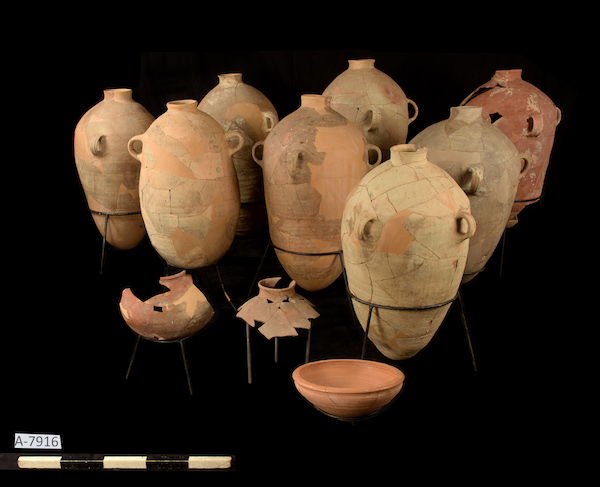The elites of the Old Testament drank their wine flavoured with vanilla, archaeologists in Israel have discovered.
Researches from Tel Aviv university and the Israel Antiquities Authority found traces of the spice in wine jars from the City of David, the site in modern East Jerusalem of the royal city of the kingdom of Judah. Chemical tests confirmed that organic residue on the pottery was vanilla.
Eli Eskozido, the director of the authority, praised the cooperation between the institutions which “brought us on a tray – or in this case, a goblet – information about the drinking habits of the nobles of Jerusalem, in the days when the first Temple stood”.
The jars date from the reign of King Zedekiah, the last king of Judah before the fall of Jerusalem and the start of the Babylonian captivity in 586 BC. They were found smashed inside two rooms under a collapsed building, believed to have been destroyed in the siege.
The Book of Kings describes the sack of the city by the emissary of Nebuchadnezzar, the Babylonian king: “He burned the house of the Lord, the king’s house, and all the houses of Jerusalem; every great house he burned down.” (2 Kings 25:9)
Researchers said that the size and number of the jars, which bore the royal rosette seal of Judah, were proof of the importance of the kingdom’s wine-drinking culture. There is also evidence that they were used to store oils.
“To date, we had no direct evidence of the use of such jars,” said Professor Yuval Gadot of Tel Aviv university. “Some suggested wine or olive oil, but there was no direct evidence of the vessels themselves. Now, we begin to piece together the jar puzzle.”
The New Testament accords a significant place to wine, from the Wedding at Cana to the institution of the Eucharist at the Last Supper, and its cultural role in Judea in the first century AD was heavily influenced by the well-documented customs of the Roman Empire.
However, there is much more limited evidence from the earlier Hebrew kingdoms, which were dominated by the Assyrian, Egyptian, and Babylonian empires.
Wine and cultivation are motifs in the Old Testament. The Psalms praise God for creating the earth “to bring forth food from the earth, and wine to gladden the human heart, oil to make the face shine, and bread to strengthen the human heart” (Psalm 104:14-15).
The prophet Amos condemned those “who drink wine from bowls, and anoint themselves with the finest oils” and warns “they shall now be the first to go into exile, and the revelry of the loungers shall pass away” (Amos 6:6-7). The researchers suggest that the jars demonstrate that such a culture existed in Jerusalem on the eve of its destruction.
They were particularly struck by the discovery of vanilla – a valuable spice not thought to have been widely-available in the region until after Columbus. It may have arrived via trade routes with India.
In the book of Isaiah, God promises: “I will not again give your grain to be food for your enemies, and foreigners shall not drink the wine for which you have laboured” (Isaiah 62:8). Modern Israeli wine is increasingly produced for export, however, and is no longer flavoured with vanilla.



 Loading ...
Loading ...